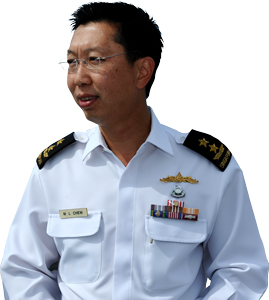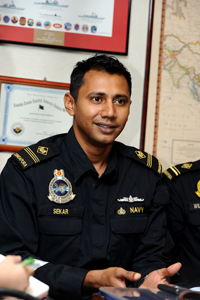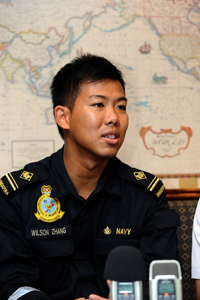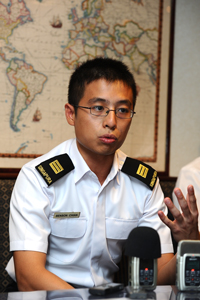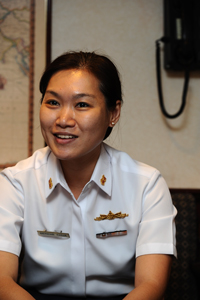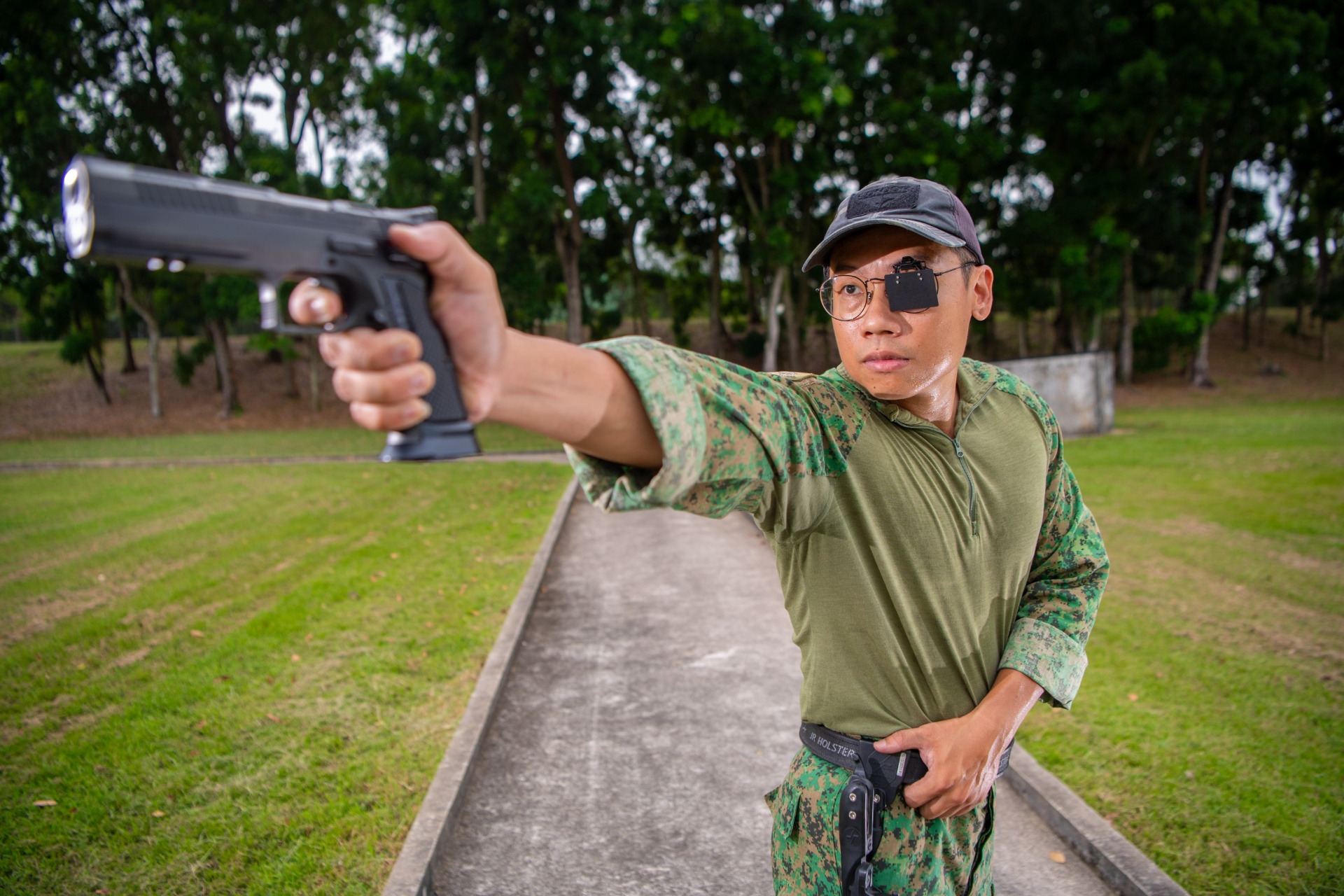TECHNOLOGY
THE NEXT LAP OF RSN'S TRANSFORMATION
19 Jul 2010
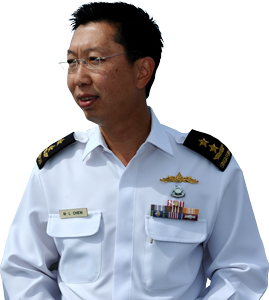
With the Republic of Singapore Navy (RSN) going full steam ahead in its 3rd Generation transformation journey, Chief of Navy Rear-Admiral Chew Men Leong tells local media in an interview on 18 May of the three areas the Navy plans to focus on as it works towards completing the journey in the next five to 10 years.
1. Synchronised Maritime Security
"We will continue to work towards a more synchronised whole-of-government approach to dealing with maritime security. We will look at a more unifying concept of operations and integrating capabilities from all the home agencies, with MSTF (Maritime Security Task Force) as a key platform, providing the leadership and the means for enhanced coordination.
We will also continue to leverage on the linkages we have with our regional partners, as well as with partners which have a very strong stake in the region... Ultimately, we want to build a more synchronised, sustainable maritime security system."
2. Sustained Performance
"We will want to continue to operationalise our capabilities well. This includes the frigates, the naval helicopters, the new submarines, and some of the older platforms, which are now in the process of being upgraded, such as the missile corvettes and the mine countermeasure vessels (MCMVs).
Missile corvettes play a critical role, especially in fighting in littoral areas, so we want to extend their lifespan as well as take the opportunity to give them a new set of capabilities that will include enhanced surveillance and better C4 (Command, Control, Communications and Computer) technologies...so that they can plug into the larger fighting system together with the frigates, as well as the larger Singapore Armed Forces (SAF).
For the MCMVs, our focus is on introducing new technologies that will enable us to test the deployment of unmanned technologies in dealing with mine threats, and refreshing the basic platform system so that they can continue to serve for another 10 to 15 years.
We want to bring our capabilities forward in a holistic way...making sure that we have put in place the operational doctrine, the logistics support system, the training as well as the necessary human capital. Basically, we want to build sustained performance."
3. Good People and Leaders
"The assimilation and development of good people and good leaders within the Navy is the fundamental enabler for a strong and robust 3rd Generation RSN. We have to continue to bring in the best of each cohort and make sure that our training system is able to give them the necessary skill sets and expertise.
We need to share with them the purpose of their mission and make sure they understand the meaning of the work they do, and the kind of contributions they will eventually make by serving in the Navy. Most importantly, we d like to imbue in our people a very strong sense of commitment and the will to fight."
Committed people
PIONEER speaks to four Navy personnel whom the RSN has been grooming.
ME3 Ganasekar
Assistant Hub Controller,
Maritime Security Task Force
Achievement: Presented with Continuous Learning Academic Study Scheme (CLASS) sponsorship to pursue an engineering diploma and graduated as a Gold Medallist in the course. Awarded CLASS degree sponsorship this year to study Electronics Engineering at a local university.
"After getting my degree, I think as long as I have the attitude and aptitude, I should be able to move on even further, and hold even more appointments that were previously held by officers. This (the Military Domain Experts Scheme) is a very good rank structure that benefits late bloomers like me."
ME4 Wilson Zhang
Combat Systems Engineer, RSS Vigour
Achievement: Joined the Navy as a specialist, and later graduated with first class honours when he studied Electrical Engineering at the University of Wollongong, Australia. Went to Officer Cadet School after getting the degree, and was awarded the Sword-of-Honour for his batch.
"The Navy has given me a purpose in life through constant nurturing and engagement, giving me a sense of identity, and I know that whatever I do in the Navy serves a greater cause. As an officer now and being in a more managerial role, leadership qualities have to be exhibited. I have to lead by example, and therefore, I must be more disciplined."
CPT Benson Chian
Officer undergoing training in the Naval Junior Officers' course
Achievement: First foreign officer to be awarded the Commander-in-Chief Medal during his studies at the Australian Defence Force Academy.
"I'm really grateful to the Navy for giving me the experiences and opportunities to excel. Without the Navy having the faith to send me as a representative in the Academy for four-and-a-half years, I wouldn't have achieved all these, and attained the qualifications that I hold today."
LTC Serene Chua
Commanding Officer,
194 Squadron (Mine Countermeasure Vessel)
Achievement: Part of the second batch of females to enrol in combat vocations. Now commands about 150 people in the squadron.
"The Navy offers me a very interesting and challenging career path. It has trained, equipped and groomed me for the job. I've been with the Navy for 19 years, and each time I get a new appointment, I see new things, get new opportunities and experience a new environment. It's always refreshing."
ALSO READ IN TECHNOLOGY
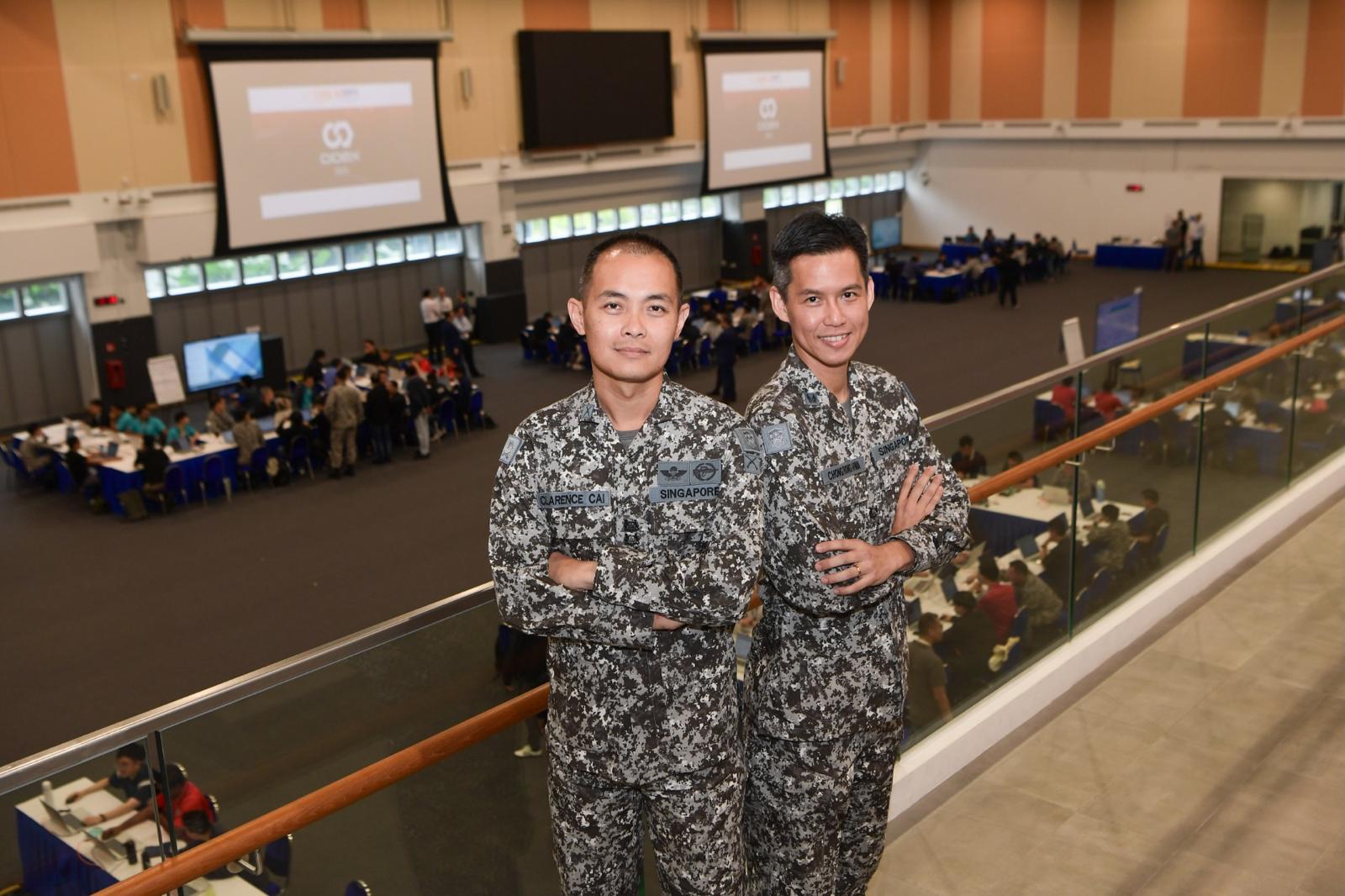
AI joins the fight in national cyber defence exercise
12 Nov 2025
AI and closer collaboration among agencies and industry are taking centre stage in this year’s Critical Infrastructure Defence Exercise (CIDeX).
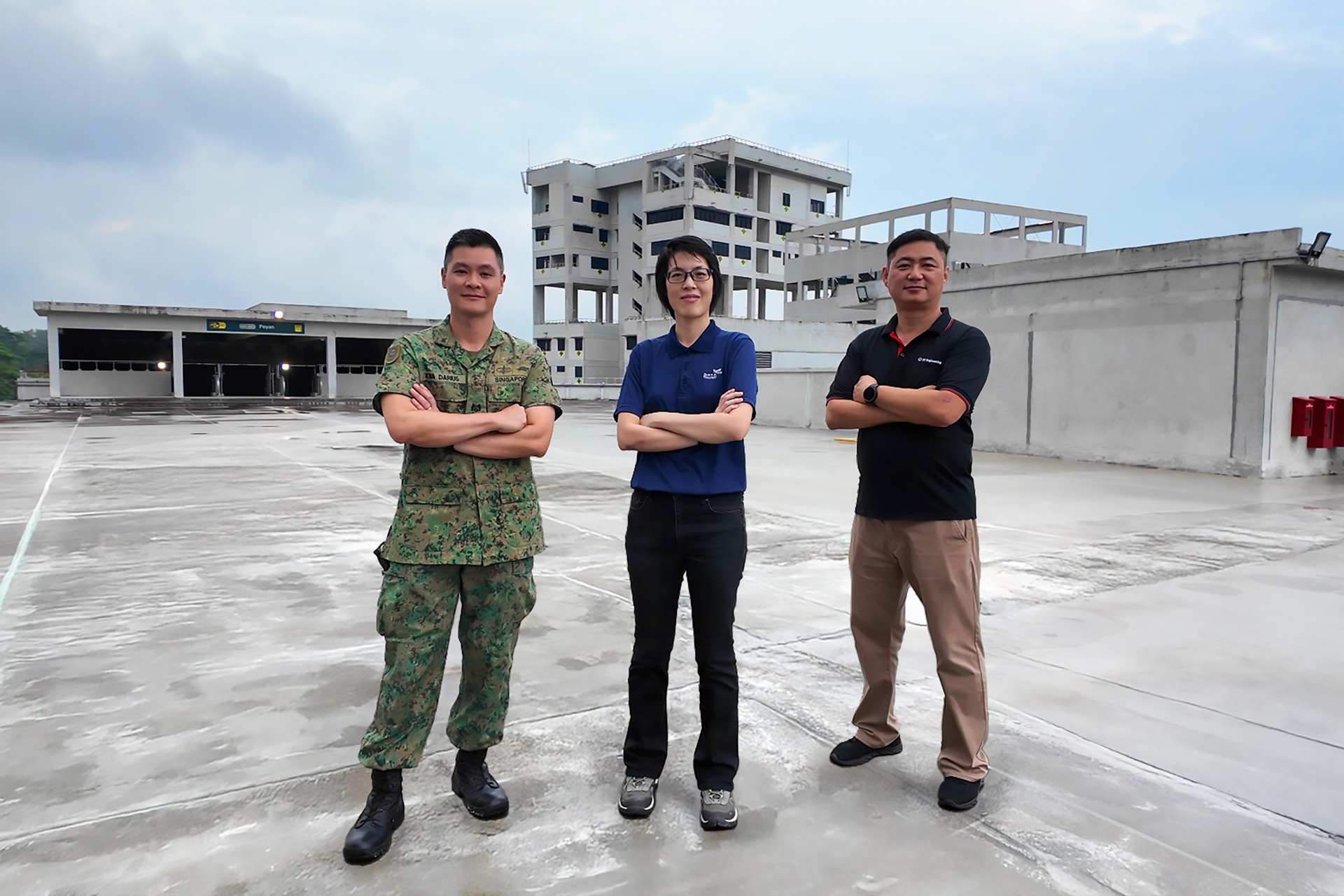
They built this city
01 Oct 2025
Turning vision to reality: the team behind SAFTI City clinches the Defence Technology Prize 2025 Team (Engineering) Award!
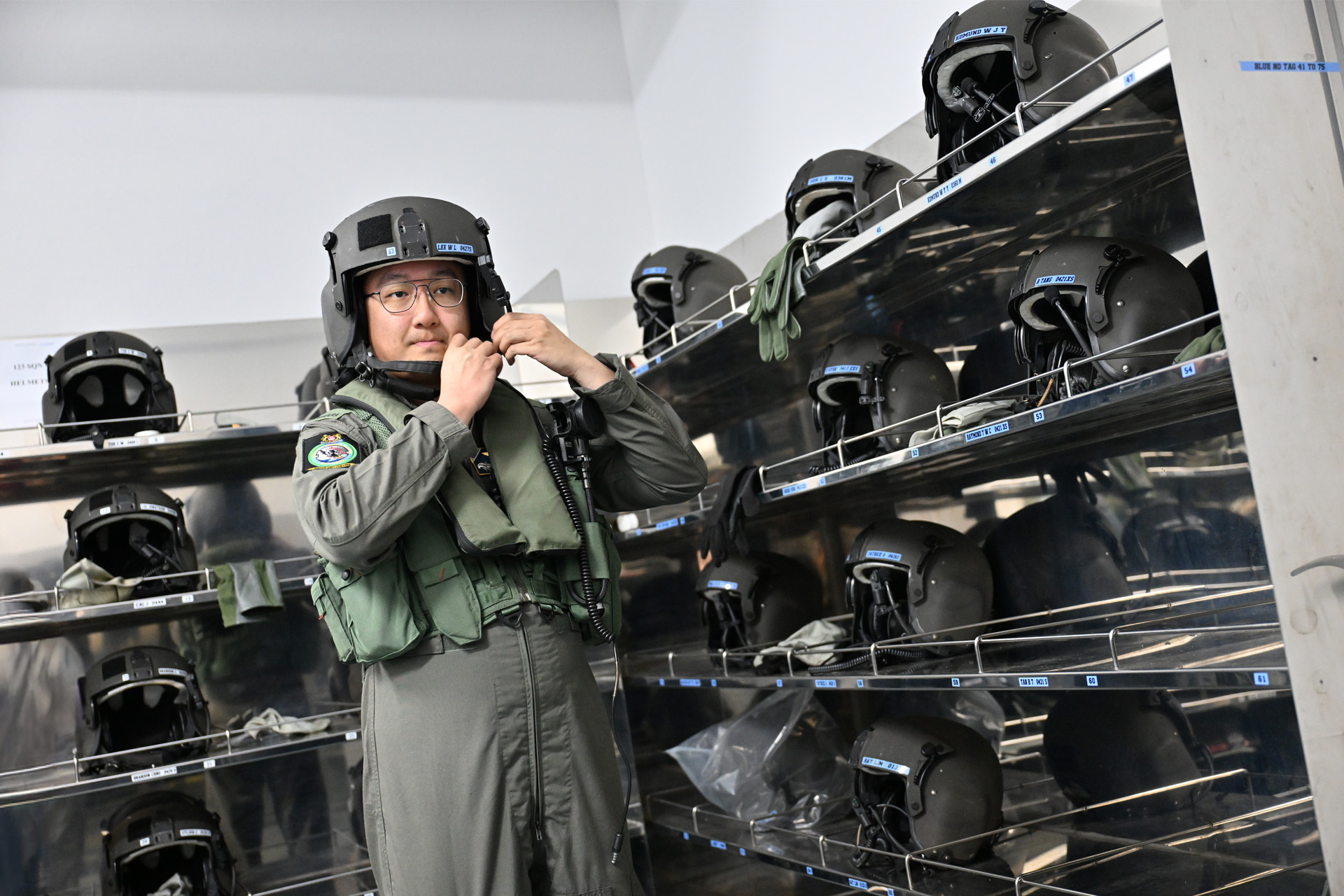
Operating over skies & seas
22 Aug 2025
This gear is designed to help a Sensor Supervisor survive emergencies in the air and at sea.

